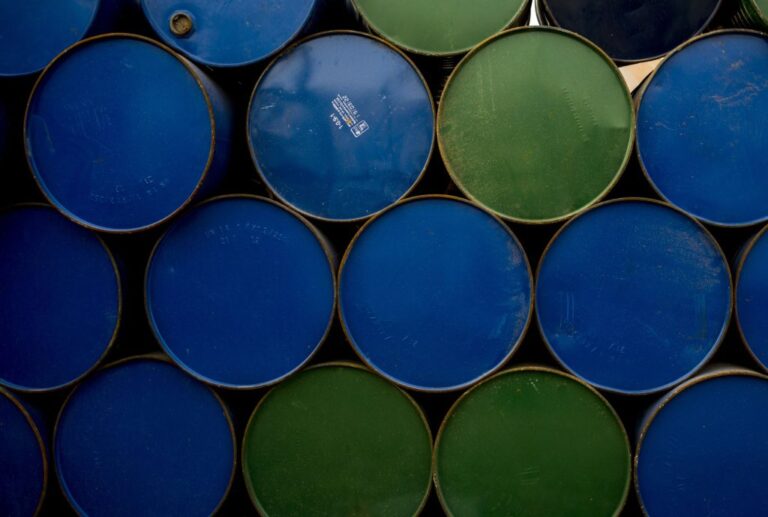African countries should be drilling for oil and investing massively in oil and natural gas, not signing up for the ‘mania’ surrounding ESG, a set of environmental, social, and governance criteria for financial investments that is being ‘weaponised’ to impose green energy on African nations that desperately need cheap, reliable energy.
NJ Ayuk, executive chair of the African Energy Chamber, has been thumping this message home to politicians and bureaucrats across the world, and again at the recent African Energy Week in Cape Town.
“Many today believe the era of colonialism in Africa is over. They’re wrong. The era of colonialism in Africa has merely entered a new and insidious phase,” he wrote in a recent Washington Examiner editorial.
“Some call it ‘neo-colonialism’. I call it colonialism 2.0. In colonialism 1.0, Western and other nations conquered large parts of Africa, and in colonialism 2.0, they use their money to impose their unrealistic ideologies on an unwilling but still desperate continent.”
The irony of Africa being asked to forsake its huge fossil fuel endowment for domestic use, while demand for ‘dirty’ African oil/gas from energy-starved Europeans is soaring, has not been lost on African leaders.
Speaking at the World Economic Forum in Davos, Switzerland, earlier this year, Nigeria’s vice-president Yemi Osinbajo said: “For many gas-rich African countries, one of the biggest shocks is the notion that fossil fuels, including gas, should be defunded, especially by international financial institutions.
“We think that gas as a transition fuel is absolutely crucial, not just for an effective transition, but also for our economies.”
Germany – one of the most enthusiastic proponents of decarbonisation – is firing up its own reserve coal-fired plants in a move that will slow down its targets of a gradual exit from coal until 2038, says Bloomberg.
It’s speculated that the prospect of a harsh European winter, and critical energy starvation, may prompt a rebalancing of green ambitions among developed nations with the new imperatives of energy security, says the FT.
Many energy investors are now calling for a more orderly transition to net zero carbon emission targets, in part because they missed out on some extraordinary growth stories in natural gas and other shunned energy sources in the last year.
Sophisticated ‘bribes’
Ayuk notes that Africa managed to reduce extreme poverty to 41% from 54% between 1990 and 2015, and could see a further decline to 23% by 2030.
“However, elites in Western countries are threatening to undermine all this progress unless Africans go along with their unrealistic and extremist expectations.
“In a rather colonial fashion, Western countries are denying African countries their once-in-a-generation opportunity for development, by making us the subjects of their ESG experiments,” he says.
“If we don’t agree to abide by ESG criteria, they try to bribe us with IMF [International Monetary Fund] and other loans through the sophisticated international finance system.
“And if that fails, they punish us by denying their help — even if it kills our people.”
‘Drill, baby, drill’
“For African nations to continue to emerge from poverty, we need to drill, baby, drill. That’s Africa’s message to the world. If we’re going to solve energy poverty, the world needs to invest in Africa’s oil, natural gas, and other God-given resources,” says Ayuk.
Zwelakhe Mabece, CEO of energy consulting firm Outflow Petroleum Insights, adds his thoughts: “These ESG policies imposed by European countries have the insidious effect of retarding Africa’s development.
“Our continent is endowed with energy sources that are cheaper to access and convert. Alternatives can be costly and have the effect of slowing Africa’s needed development. I think African leaders should take a stand for the development of the continent.”
Foreign leaders from developed countries need to tone down their rhetoric that fossil fuels are evil, and Africans should stop apologising for their energy endowment, says Ayuk.
That’s not to say Africans are ignoring the green agenda, “we simply are not willing to embrace Western elites’ timetables for transitioning to renewable energy at the expense of the energy security and economic well-being of our own people.”
Speaking at the Africa Energy Week in Cape Town, Ghanaian minister of energy Matthew Opoku Prempeh remarked that over 80% of the oil and gas exported from Africa ends up in Europe, China, and India.
Africa accounts for just 2% to 3% of global emissions, while 640 million Africans have no access to energy – equivalent to an electricity access rate of just over 40%.
Natural gas accounted for 39% of Africa’s electricity generation mix in 2019, followed by coal (29%), hydro (15%) and oil (10%), according to the African Energy Chamber. Nuclear accounts for another 2%, and renewables about 5%.
Earlier this year, the European Commission voted to allow specific uses of natural gas and nuclear energy in its taxonomy of sustainable sources of energy.
Ayuk argues that the West has largely completed its industrialisation powered by fossil fuels, yet Africans are now being held in poverty for the sake of environmental extremists in the West who can’t even provide for their own energy needs, let alone Africa’s.
He says the West is imposing its own environmental priorities on countries that are still working on providing the basics to their people — food, infrastructure, internet connectivity and energy.
“A growing number of Western countries are making their aid packages contingent on going ‘green’ when African nations simply can’t afford it,” says Ayuk.
“In such a situation, the West cannot be surprised if such nations begin turning to countries like China and its Belt and Road Initiative for cheap capital with no environmental strings attached.”
Read:



